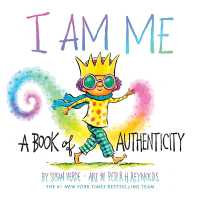Full Description
Throughout the nineteenth and twentieth centuries, teachers, administrators, and policymakers fashioned a system of industrial education that attempted to transform Black and Indigenous peoples and land. This form of teaching—what Bayley J. Marquez names plantation pedagogy—was built on the claim that slavery and land dispossession are fundamentally educational. Plantation pedagogy and the formal institutions that encompassed it were thus integrally tied to enslavement, settlement, and their inherent violence toward land and people. Marquez investigates how proponents developed industrial education domestically and then spread the model abroad as part of US imperialism. A deeply thoughtful and arresting work, Plantation Pedagogy sits where Black and Native studies meet in order to understand our interconnected histories and theorize our collective futures.
Contents
Contents
PART ONE
THE FOUNDATIONS OF PLANTATION PEDAGOGY
Introduction: Teaching Slavery and Settlement
1 • Plantation Pedagogy, Educative Space, and Currents of Colonialism
PART TWO
PLANTATION PEDAGOGY IN THE CURRENTS
2 • Plantation Pedagogy on the Reservation
3 • Pacific Currents: Island Plantations and Industrial Schooling
4 • Atlantic Currents: Industrial Education and Anti-colonial Struggle in Africa
PART THREE
PLANTATION PEDAGOGY AS A TECHNOLOGY OF SETTLEMENT
5 • "Out from Cabin and Tepee": Settlement, Slavery, and the Making of Domestic Space
6 • Teachers of Teachers: The Expansion of Plantation Pedagogy through Teacher Training
7 • "Better Land, Better Stock, Better People": The School as Experiment Station and Laboratory
Conclusion: Learning by (Not) Doing?
Acknowledgments
Notes
Bibliography
Index







